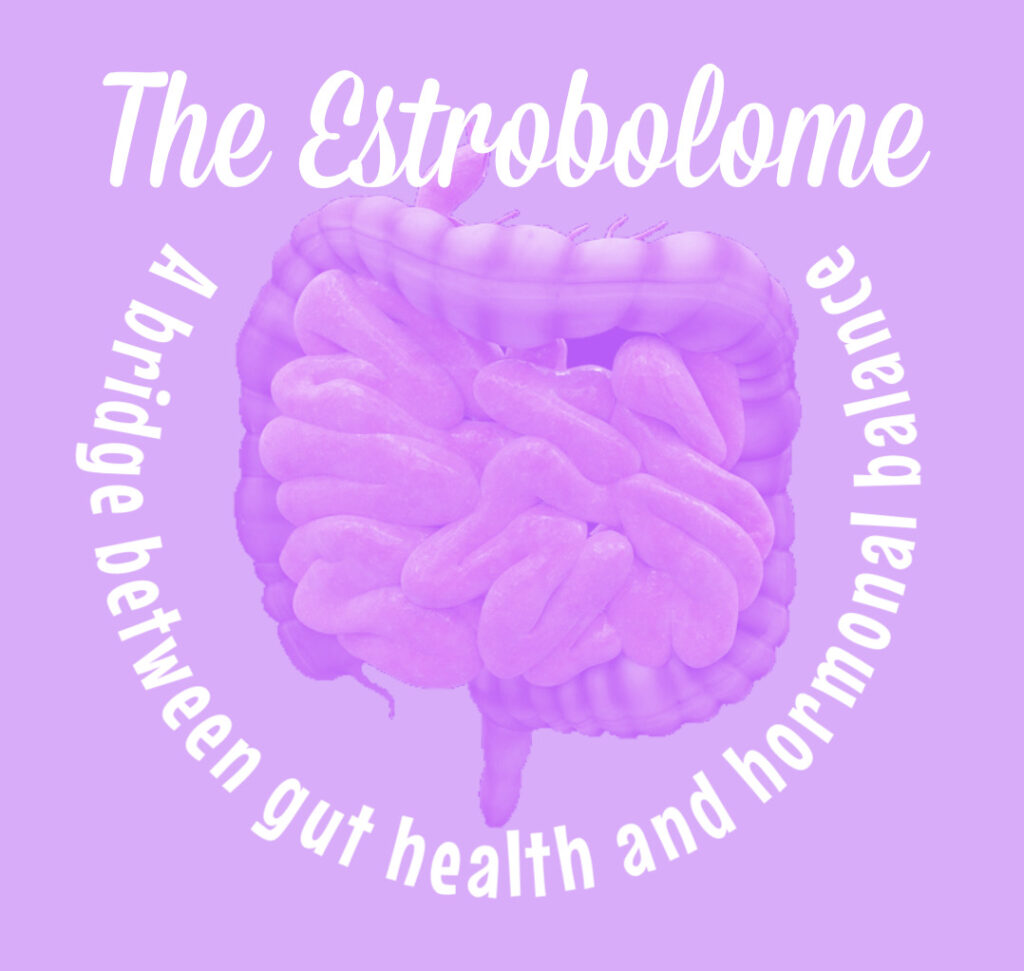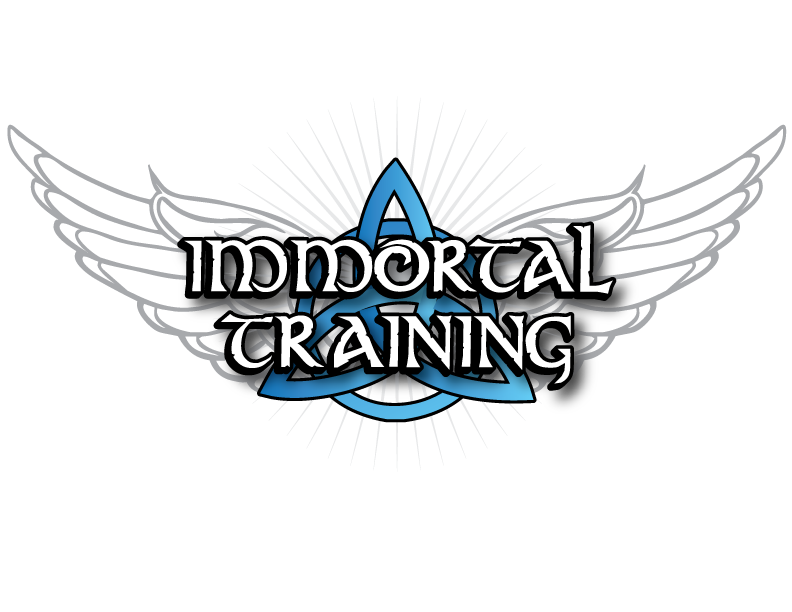by Tay Gabbidon | Mar 28, 2023 | Uncategorized
WHAT IS THE BEST WAY TO IMPROVE YOUR IMMUNITY?
Immunity is the body’s natural defence mechanism that protects us from diseases, infections and other harmful pathogens. With the current global health crisis, improving immunity has become more important than ever.
Listed below are five ways to increase your immunity.
A Balanced Diet
A well-balanced diet consisting of fruits, vegetables, protein, whole grains, and healthy fats can strengthen your immunity. Eating a rainbow of fruits and vegetables provides essential vitamins, minerals, and antioxidants that help protect the body.

There are several key nutrients that play a crucial role in promoting strong immunity.
Vitamin C: This powerful antioxidant helps to increase the production of white blood cells, which fight off infections. Vitamin C-rich foods include oranges, kiwi, grapefruit, strawberries, broccoli, and bell peppers.
Vitamin D: This nutrient actually a hormone. It is the only hormone that we can’t create on our own. It helps to strengthen the immune system by promoting the production of antibodies. Vitamin D can be found in foods such as fatty fish, egg yolks, and mushrooms, but the best source is sunlight.
Zinc: This mineral helps to support the immune system by fighting off harmful pathogens. Zinc can be found in foods such as seafood, poultry, beans, nuts, and seeds.
Iron: This mineral is essential for the production of healthy red blood cells, which helps to transport oxygen throughout the body. Iron-rich foods include red meat, poultry, seafood, beans, and leafy greens.
Probiotics: These are good bacteria that maintain a healthy gut microbiome, which plays an important role in immunity. Probiotic-rich foods include yogurt, kefir, sauerkraut, and kimchi.
Incorporating these nutrients into your diet can help to boost your immunity and keep you healthy. However, it’s important to remember that no single nutrient can guarantee immunity against illnesses. A balanced and varied diet along with a healthy lifestyle is the key to maintaining immunity.
Regular Exercise
Regular physical activity not only keeps the body fit, but also decreases the risk of chronic diseases. It helps increase blood flow and circulation in the body, which can help fight off infections.
Routine exercise has been shown to improve the immune system by stimulating production of white blood cells. White blood cells help fight off infections and diseases. Training also enhances blood circulation, which allows these cells to travel efficiently throughout the body. Additionally, exercise reduces stress hormones such as cortisol, which can suppress immune function over time. Incorporating physical activity into your daily routine can improve your immune system’s ability to protect against illnesses and infections.
Adequate Sleep
Getting 7 to 8 hours of sleep can help reduce the risk of infections by improving the function of immune cells that fight against viruses and bacteria. A good sleep routine and avoiding technology before bed helps provide restful sleep for the body to recover from the day’s activities.
During sleep, our body produces cytokines, which are proteins that help our immune system fight off infections and inflammation. With inadequate sleep, our body produces fewer cytokines, leaving us more vulnerable. Additionally, sleep helps our body build and strengthen its T cells, B cells, and natural killer cells. Studies show that people who get enough high-quality sleep are less likely to get sick. They also recover faster from sickness, and have a better response to vaccines. Therefore, prioritizing good quality sleep is crucial for maintaining a robust and healthy immune system.
Stress Reduction
Chronic stress can weaken the immune system, leading to the increased risk of diseases. Practicing relaxation techniques such as meditation or yoga can help reduce stress and improve immunity.
Low stress is important for immunity because chronic stress impairs the immune response, making us more vulnerable to infections, illnesses and diseases. Stress triggers the release of the hormone cortisol, which, in excess can weaken the immune system. High stress levels also lead to unhealthy coping mechanisms such as smoking, drinking, overeating or not sleeping well. By managing stress through mindfulness, yoga, meditation or regular exercise, we can boost immunity and improve our health.

Stay Hydrated
Drinking enough water is essential; it helps flush out toxins and other impurities from the body. A well-hydrated body ensures that the immune system functions correctly, and the body’s defence mechanisms are in place.
Conclusion
In conclusion, there are many simple steps you can take to boost your immunity and protect your health. By following an immune-boosting diet, getting adequate sleep, exercising regularly, managing stress, and reducing exposure to harmful toxins and germs, you can strengthen your immune system. Remember, taking care of your immunity is not something that can be achieved overnight. Making small lifestyle changes and incorporating good habits can go a long way in promoting health and wellness. By prioritizing your immunity, you can enjoy a healthier, vibrant life.
References:
https://www.ncbi.nlm.nih.gov/pmc/articles/PMC7281985/
https://www.ncbi.nlm.nih.gov/pmc/articles/PMC1361287/
https://www.ncbi.nlm.nih.gov/pmc/articles/PMC7387807/#:~:text=The%20practice%20of%20physical%20exercises,as%20well%20as%20cell%20recruitment.
Enjoy this article? Here’s a couple more!:
The Benefits of Exercise on Mental Health – https://immortal-training.com/benefits-of-exercise-on-mental-health/
5 Main Causes of Belly Fat in Women – https://immortal-training.com/5-main-causes-of-belly-fat-in-women/
by Tay Gabbidon | Mar 28, 2023 | Uncategorized

IS THERE A CONNECTION BETWEEN THE THYROID AND THE GUT?
Science has known that there is a connection between the gut and thyroid since the 1950s. However, the understanding of it’s importance comes from more recent discoveries. Traditionally, medication has been the only treatment for thyroid conditions. Now most doctors believe that a holistic approach to diet and lifestyle may play a more vital role in treatment.
In many cases, gut dysbiosis (bad bacteria) and autoimmune diseases, such as Hashimoto’s, are symbiotic. Therefore, addressing the root cause of inflammation, and improving gut health is absolutely necessary for treatment, and possible remission. Getting your gut to a healthy ratio of 80% probiotic to 20% dysbiotic bacteria will improve your metabolic function ability.
A study conducted in 2019, found that patients with thyroid cancer and nodules had an increase is dysbiotic strep bacteria when compared to probiotic. The study concluded that probiotics should be used to treat and prevent thyroid cancer, because of the strong association to autoimmunity.
HOW DOES THE THYROID COMMUNICATE TO THE GUT MICROBIOME?
THE HYPOTHALAMIC PITUITARY THYROID AXIS
The Hypothalamic Pituitary Thyroid (HPT) axis is a complex neuroendocrine system that regulates the body’s metabolism, growth and development, and internal organ function. It is responsible for the production and release of thyroid hormones. Thyroid hormones are essential for maintaining balance in the body’s metabolism.
The HPT axis starts in the hypothalamus, a small area of the brain that releases thyrotropin-releasing hormone (TRH). TRH travels to the pituitary gland, a small pea-sized gland located at the base of the brain, and signals it to release thyroid-stimulating hormone (TSH). TSH then travels to the thyroid gland, a butterfly-shaped gland located in the neck, and signals it to produce and release the thyroid hormones – thyroxine (T4) and triiodothyronine (T3). The thyroid hormones play a vital role in regulating the body’s metabolism, energy expenditure, heart rate, and temperature. Once the thyroid hormones are balanced, they signal back to the hypothalamus and pituitary glanda to regulate the production of TRH and TSH, forming a feedback loop that maintains the body’s optimal functioning.
This feedback loop can become dysregulated by bad bacteria, which can impair gland function. Dysbiotic bacteria can also cause gut permeability, which increases autoimmunity. The more autoimmunity there is the more stress put onto the HP axis.
THE HYPOTHALAMIC PITUITARY ADRENAL & HYPOTHALAMIC PITUITARY GUT AXISES
The ‘HPA’ axis stands for Hypothalamic-Pituitary-Adrenal axis. Notice how ‘adrenal’ and ‘thyroid’ are used interchangeably. Respectively, HPG represents the Hypothalamic Pituitary Gut axis. See the pattern? The hypothalamic and pituitary are glands in the brain. The word that follows identifies the gland in the body where the feedback loop is communicating.
In response to stress, the adrenals release the hormone cortisol. Too much cortisol in the body will disrupt the conversion of T4 into T3, affecting the thyroid, slowing down your metabolism.
HOW CAN I USE MY GUT MICROBIOME TO IMPROVE THYROID FUNCTION?
The microbiome has effect on digestion, as healthy bacteria is needed to produce good acids. Healthy bacteria makes is difficult for bad bacteria to flourish. Good bacteria excretes toxins (endotoxins, lipopolysaccharides, lithocholic acid, etc.). Bad bacteria excretes vital nutrients, such as zinc, magnesium, Vitamin A, etc.)
A well rounded approach works best. Sticking to a diet high in fermented foods, such as kimchi, sauerkraut and kefir, will help healthy gut bacteria thrive. Keeping stress low will help regulate the HP axis in positive way.
References:
https://pubmed.ncbi.nlm.nih.gov/30584647/
https://pubmed.ncbi.nlm.nih.gov/27801835/
https://pubmed.ncbi.nlm.nih.gov/27801835/
https://pubmed.ncbi.nlm.nih.gov/28689782/
https://www.ncbi.nlm.nih.gov/pmc/articles/PMC5794709/
https://pubmed.ncbi.nlm.nih.gov/28918360/
https://www.ncbi.nlm.nih.gov/pmc/articles/PMC5715198/
Like this article? Here’s more similar articles!:
What is Estrobolome Gut Bacteria – https://immortal-training.com/what-is-estrobolome-gut-bacteria/
10 Ways to Boost Your Metabolism – https://immortal-training.com/10-ways-to-boost-your-metabolism/
by Tay Gabbidon | Mar 26, 2023 | Uncategorized
The Estrobolome: Understanding Our Gut Bacteria and Their Hormonal Influence
The human body is home to trillions of microorganisms. The majority of them living within our gut. These bacteria play a significant role in our overall health. They contribute to a healthy immune system and aid in the absorption of nutrients. However, research has revealed that these bacteria also influence our hormonal balance, specifically in women.

What is the Estrobolome?
The estrobolome is a subset of our gut microbiota that has been shown to metabolize estrogen, a predominantly female hormone. Estrogen plays a vital role in regulating the menstrual cycle, and pregnancy. It has also been linked to various health conditions like breast cancer, obesity, and diabetes. The estrobolome is essential for maintaining hormonal balance by breaking down estrogen into a less potent form that can be excreted though the urine or faeces.
The 2017 study titled “The gut microbiome and estradiol levels in female reproductive-age women” investigates the relationship between the diversity of the gut microbiome, and estradiol levels in women of reproductive age. The study found that the diversity of the gut microbiome was positively correlated with circulatory levels of estradiol. Furthermore, specific bacterial species, including Lactobacillus and Bifidobacterium, were significantly associated with higher estradiol levels. These findings suggest that the gut microbiome plays a crucial role in regulating hormone levels, and reproductive health in women.
Further research has suggested that disruptions to the estrobolome can lead to a buildup of estrogen and hormonal imbalances. An imbalance can lead to an increased risk of developing breast cancer, endometriosis, polycystic ovary syndrome, reproductive, and hormonal disorders. Interestingly, studies have also shown that the estrobolome can be influenced by diet and lifestyle choices such as exercise and tobacco use.
How Can I Improve My Estrobolome Gut Health?
Prebiotics and probiotics are essential in promoting a healthy estrobolome. Prebiotic-rich foods like asparagus, garlic, onion, leeks, and legumes provide fiber, which is essential for promoting healthy gut bacteria growth. Probiotic foods like kefir, kimchi, and kombucha contain live and active cultures that help replenish the gut microbiota. In contrast, a poor diet filled with sugary snacks, processed foods, and alcohol can promote the growth of harmful bacteria that disrupt the estrobolome’s delicate balance.

Conclusion
To summarize, the estrobolome is essential in maintaining hormonal balance. Health-promoting lifestyle choices, including a diet rich in prebiotics and probiotics, can help maintain a healthy estrobolome. As research in this field continues to grow, future therapies targeting the estrobolome may be developed to prevent and treat hormonal imbalances in women.
References:
https://pubmed.ncbi.nlm.nih.gov/28778332/
https://www.ncbi.nlm.nih.gov/pmc/articles/PMC5017946/
Did you enjoy this article? Here’s another!: https://immortal-training.com/strength-training-and-dieting-throughout-your-menstrual-cycle/
by Tay Gabbidon | Mar 26, 2023 | Blog, Cardio, Science, Uncategorized

Steady-State Cardio v HIIT – Which is Better?
Steady-state cardio (SSC) and high-intensity interval training (HIIT) are two very different types of exercise. While SSC is typically done at a moderate level of intensity for an extended period of time, HIIT involves bursts of high-intensity exercise followed by periods of rest or low-intensity exercise.
So, which one is better? The answer actually depends on your fitness goals and personal preferences.
However, here are some factors to consider when comparing steady-state cardio to HIIT:
Time Efficiency
HIIT typically takes less time to complete than steady-state cardio because of the high-intensity bursts that are involved. In fact, research has shown that just 15-20 minutes of HIIT can produce similar results to 45-60 minutes of steady-state cardio. Therefore, if you are short on time, HIIT may be the better choice for you.
Caloric Burn
HIIT has been shown to burn more calories in a shorter amount of time than steady-state cardio. This is because the high-intensity bursts increase your metabolism and keep it elevated throughout the day. HIIT also depletes glycogen stores in the muscles quicker than SSC, making it easier to achieve thermogenesis (burning of fat). However, steady-state cardio is still effective for burning calories and can be a great option for those who enjoy longer, more relaxing workouts.
Cardiovascular Health
Both types of exercise are great for improving cardiovascular health. However, SSC is typically better for increasing endurance and cardiovascular capacity, while HIIT is better for improving overall cardiovascular function and reducing the risk of heart disease.
Muscle Building
HIIT is great for building lean muscle mass, as it involves strength-training exercises in addition to cardio. Steady-state cardio, on the other hand, can actually break down muscle mass if done for too long or too frequently. Visualise, and compare the physiques of marathon runners v. 100 meter sprinters. The difference in overall muscle mass speaks for itself.
Injury Risk
HIIT can be more intense and may pose a higher risk of injury if not done properly. Steady-state cardio, while still requiring proper form and technique, is generally lower impact and less likely to cause injury.
In conclusion, both steady-state cardio and HIIT are effective forms of exercise that offer different benefits. Ultimately, the best choice for you will depend on your individual goals and preferences. Mixing both types of exercise into your workout routine is also a great option to get the best of both worlds.
References:
https://pubmed.ncbi.nlm.nih.gov/25162652/
https://pubmed.ncbi.nlm.nih.gov/22201691/
https://pubmed.ncbi.nlm.nih.gov/17414804/
Did you enjoy this article? Here’s another!: https://immortal-training.com/10-ways-to-boost-your-metabolism/
by Tay Gabbidon | Mar 25, 2023 | Uncategorized
What is the Best Way to Boost Your Metabolism?
Having a fast metabolism means your body burns calories at a higher rate, making it easier to maintain or lose weight. While your metabolism can be somewhat determined by genetics, there are several things you can do to increase it.
Here Are 10 Ways to Boost Your Metabolism
1) Build Muscle:
Muscle is more metabolically active than fat, meaning it burns more calories at rest. The more muscle you have, the more calories you’ll burn even when you’re not exercising. Resistance training, such as weightlifting, is the best way to build muscle.

2) Drink Enough Water:
Drinking water can help you burn more calories. When you’re dehydrated, your metabolism slows down. Try to drink at least eight glasses of water a day.
3) Eat More Protein:
Protein requires more energy to digest than carbs or fat, meaning it burns more calories. Eating a high-protein diet can increase your metabolic rate and help you lose more weight. Protein is also needed to build muscle, and higher muscle mass leads to a higher metabolism as previously mentioned.
4) Eat Enough Calories:
Starving yourself can slow your metabolism down. Your body goes into “starvation mode,” conserving energy and burning fewer calories. Staying in a deficit that is more than 500kcal per day will make you produce reverse T3, which blocks the thyroid receptors from binding to real T3 (the active thyroid hormone). Make sure you’re eating enough calories to keep your metabolism running at a healthy rate.
5) Spice It Up:
Eating spicy foods, such as cayenne pepper or jalapeños, can temporarily increase your metabolism. Capsaicin, the compound that gives chili peppers their heat, can boost your metabolic rate by up to 8%.
6) Drink Coffee, or Green Tea:
Coffee and green tea contains caffeine, which can boost your metabolic rate by up to 11%. However, drinking too much caffeine can have negative effects, so limit your intake to no more than three cups a day.

7) Get Enough Sleep:
Lack of sleep can slow down your metabolism. Aim for at least seven hours a night, and try to stick to a regular sleep schedule.
8) Do Cardio:
Cardiovascular exercise, such as running or cycling, can boost your metabolism for several hours after your workout. Aim for at least 30 minutes of cardio a day.
9) Stand Up:
Sitting for extended periods of time can slow your metabolism down. Try to stand up and move around for a few minutes every hour.
10) Get Some Sun:
Vitamin D deficiency can slow your metabolism down. Getting enough sun exposure, or taking a vitamin D supplement, can help boost your metabolism. In conclusion, while you can’t change your genetics, you can increase your metabolism through diet, exercise and lifestyle changes. Try out these tips to help boost your metabolism and maintain a healthy weight.
References:
https://pubmed.ncbi.nlm.nih.gov/23858091/
https://www.ncbi.nlm.nih.gov/pmc/articles/PMC4258944/
https://pubmed.ncbi.nlm.nih.gov/7369170/
https://www.ncbi.nlm.nih.gov/pmc/articles/PMC3661116/
Like what you read? Here are some more articles to help on your weight loss journey:
Intermittent Fasting Guide: https://immortal-training.com/intermittent-fasting-24-hour-guide/
Five Main Causes of Belly Fat in Women: https://immortal-training.com/5-main-causes-of-belly-fat-in-women/









Recent Comments